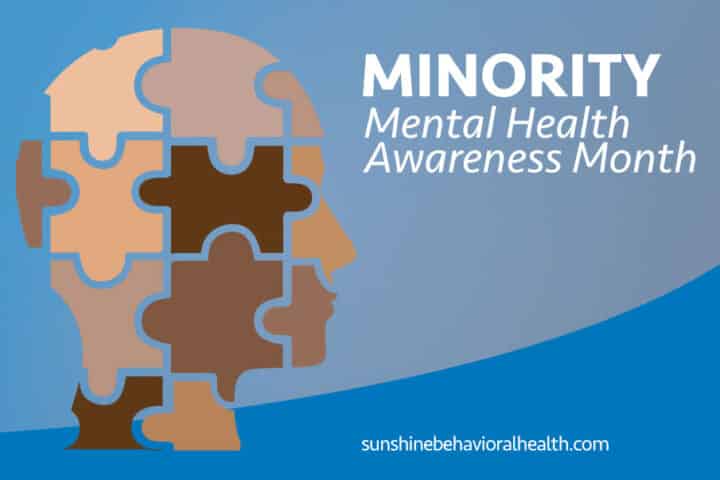
Minority Mental Health Awareness Month: Racism Harms Health
Black lives matter.
Recent events have illustrated the inequities between the lives of black people and white people in the United States. In addition to the usual problems and stresses of life, African Americans face overt and subtle racism that threatens their lives directly and indirectly.
How does racism hurt health?
Such racism can threaten African Americans’ lives directly. In May 2020, former police officer Derek Chauvin, who is white, killed George Floyd, a black man, by kneeling on his neck for nearly nine minutes.
Racism can also hurt in less obvious, more indirect ways. It can create health problems such as stress.
Stress is physical and emotional. It produces hormones that can wear on the body, especially if people face multiple incidents of ongoing racism. Researchers believe this prolonged stress may contribute to chronic health problems.
Generations of racism has made it more difficult for many African Americans to pursue educations, find well-paying jobs, earn money, and gain socioeconomic advancements.
If African Americans don’t have money or jobs that provide health insurance benefits, they may find it difficult to pay for health care. Not treating health conditions early can make them worse, so people in this community may face worsening conditions that can even be more costly to treat.
How can African Americans find help?
Ongoing stress related to racism can contribute to depression and anxiety. It can also contribute to depression and anxiety. Some African Americans have attached stigmas to such conditions as well as receiving treatment for them, but actress Taraji P. Henson and others are working to dispel those views.
Henson has noted that mental health assistance can prevent people from using drugs or alcohol to numb their pain or killing themselves. She created the Boris Lawrence Henson Foundation (named after her father) to eradicate stigmas, provide mental health services, and help African Americans find mental health professionals.
FindTreatment.gov
Using the internet is a good way to find mental health professionals. For example, African Americans can go to the site FindTreatment.gov to find treatment for mental illnesses and addictions.
By entering your zip code or city at this site, you can find
- Treatment providers.
- Their specialties and the services they offer.
- Phone numbers, addresses, and maps to their locations.
- Information about the insurance providers they accept.
The page also lets you narrow your search to determine if treatment professionals offer services for children, veterans, the LGBTQ community, people who speak languages other than English, and other communities. Help is out there, and different sites can help you find it.
Sources
npr.org – Scientists Start to Tease Out the Subtler Ways Racism Hurts Health
sunshinebehavioralhealth.com – Does My Insurance Cover Alcohol and Drug Rehab?
webmd.com – How Stress Affects Your Health
sunshinebehavioralhealth.com – Overcoming Substance Abuse Triggers
findtreatment.gov – Find a Treatment Facility Near You
A Message From Our CEO
Medical disclaimer:
Sunshine Behavioral Health strives to help people who are facing substance abuse, addiction, mental health disorders, or a combination of these conditions. It does this by providing compassionate care and evidence-based content that addresses health, treatment, and recovery.
Licensed medical professionals review material we publish on our site. The material is not a substitute for qualified medical diagnoses, treatment, or advice. It should not be used to replace the suggestions of your personal physician or other health care professionals.





